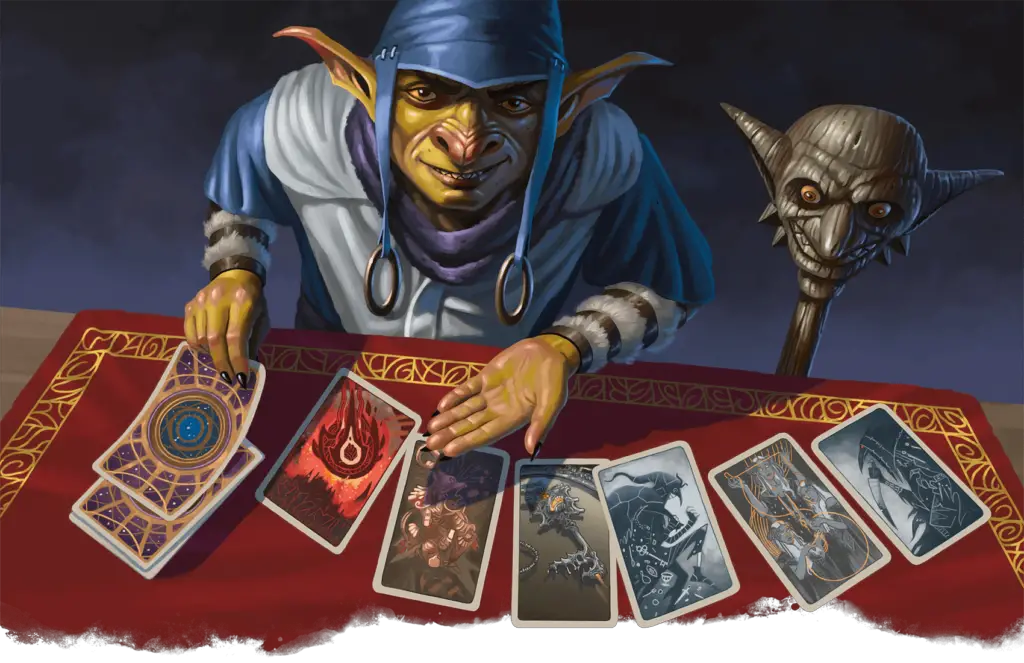Featured art by shiprock, Creative Commons Attribution-Noncommercial-No Derivative Works 3.0 License
This article contains affiliate links that add gold to our coffers.
Archmages are common “boss monsters” in D&D. Dungeon Masters enjoy deploying powerful spellcasters to challenge their adventurers. Adventurers would do well to go into these types of fights prepared rather than without intel (winging it). After all, you don’t want to get roasted, enslaved, or raised into an undead army by some cocky spell slinger.
I want to clarify that I’m referring to archmages in general, not the official stat block found in the Monster Manual.
Here are my tips for overcoming dangerous spellcasters, particularly archmages!
Utilize Resources
Your party will likely have characters better suited to handling particular magical threats, so take inventory of your own resources. Elves are strong against charms, Dwarves are strong against poisons, Tieflings and Dragonborn are strong against selective elemental damage, and Yuan-ti Purebloods have both magic resistance and poison immunity.
You may also have a selection of spells that can counter your enemy’s threatening go-to powers. Spells like Protection From Energy and Absorb Elements will be useful against elemental damage.
Items may also lend a hand, especially wands that can dispel, cloaks that bolster saving throws against magic, gems that reveal invisible creatures, braziers that summon powerful allies, or weapons that improve your mobility through teleportation and other means. Ensure items are carried and used by party members that are most likely to need items or have advantageous situations to deploy items. By the way, I recommend finding a Rod of Cancellation; this will negate the pesky Prismatic Wall spell. You’ll be glad you have a Rod of Cancellation if you go up against such a spell.
NPC’s may be helpful, particularly against archmages that have a posse. They can function as fodder if you’re into that, but they can also be used to great effect to focus down powerful spellcasters that may be concentrating on powerful spells. Bringing a small army with you could force an enemy spellcaster to use a blast spell when they’d normally use different powers that would devastate your small party on its own.
The terrain can also be important. Take cover and get out of sight when you end your turn in combat against powerful spellcasters. Many targeted abilities require line of sight, so you’ll protect yourself with the terrain. You can read more about using Cover rules and line of sight to your advantage in this other article I wrote about Cover. You can hinder a spellcaster’s ability to control the battlefield if you limit their visibility. Use a Fog Cloud spell or similar spell to limit their sight. Smokescreens and other fiery diversions can be used in battle if you toss Alchemist Fire potions into forest greenery or a pile of dead leaves you prepared ahead of time to burn quickly and block vision with its smoke. Remember to position yourselves so the smokescreen will actually help you, though.
I highly recommend the Mage Slayer feat for melee attackers that plan on fighting spellcasters often. A Rogue can become a Wizard killer with this feat as they quickly end spell concentration and get out-of-turn sneak attack damage with reaction attacks.
Bardic Inspiration can apply to the skill checks made when casting Dispel Magic and Counterspell. Jack of All Trades will also apply to these skill checks. For these reasons, Bards can be excellent supports when battling powerful spellcasters. Bardic Inspiration lasts for ten minutes, so I recommend divvying out the Bardic Inspiration dice before combat begins (assuming you know you’re entering a conflict).
Paladins’ Aura of Protection will significantly bolster your party’s saving throws if the group can afford to stay near the Paladin. Paladins with Oath of the Ancients have Aura of Warding to give nearby allies resistance to spell damage (notice it’s not all magical damage, just spells).
Abjuration Wizards in the party are some of the best anti-spellcasters in the game. They have resistance to damage from spells and advantage on saving throws against spells thanks to their Spell Resistance subclass feature. Abjurors also have the Improved Abjuration feature to empower their skill checks to succeed with Counterspell and Dispel Magic.
As you can see, many resources will lend to your fights with high-level spellcasters. Some of your greatest resources are spells to fight arcane fire with arcane fire. I’ll talk next about specific spells that I recommend preparing against spellcasters:
Spells to Spank Spellcasters
I recommend having options in your party for casting several spells that are handy against high-level spellcasters:
- Dispel Magic (link to entire article about the spell)
- Be ready to ‘undo’ spells that the archmage uses against you. The range is 120 feet, so you can keep your distance and remain out of sight until needed.
- Counterspell (link to entire article about the spell)
- For the mere cost of a reaction, you can negate an archmage’s entire turn and burn their spell slot. You’ll need to stay within sixty feet of the archmage to cast Counterspell, and you’ll need to save your reactions each round. It’s best if you have two allies casting Counterspell if the archmage chooses to Counterspell your own Counterspell!
- Disintegrate
- Surprised? Allow me to explain; Disintegrate is one of the few ways to deal with high-level spells like Forcecage and Wall of Force that could really ruin your day if you don’t have an answer to them. When the barbarian in the party gets trapped in a Forcecage, they’ll sing your praises when you cast Disintegrate on the cage to free them. Dispel Magic specifically can’t deal with a Forcecage, so keep Disintegrate ready.
- Fog Cloud
- Line of sight is required for many spells. If the archmage can’t see, options are limited. You can place the fog between the archmage and your group as you close the gap to engage in close quarters, or you can place the archmage or yourselves in the fog. Remember, your own visibility will be limited, so consider using the Ready action to make your moves all at once when the Fog Cloud drops. Since it’s a first-level spell, you can learn it from the Magic Initiate feat.
- Sleet Storm
- Similar to Fog Cloud, Sleet Storm is a spell that obscures vision. Its radius is massive. Its effects include difficult terrain, dousing flames, forcing Dexterity saving throws to force the prone condition, and forcing concentration saving throws to maintain spell concentration (even though no damage is dealt). The concentration hindrance is a big deal. Flying creatures may also fall to the ground if they become prone. This spell can be like a battlefield reset if you’re in a tight spot. I always prepare it as a Wizard.
- Absorb Elements
- Resist elemental damage of your choice for a whole round and boost a melee counter-attack. This spell has saved my butt numerous times when I’ve battled high-level spellcasters and monsters that wield the elements. Absorb Elements will require your reaction, but it’s worth it. Since it’s a first-level spell, you can learn it from the Magic Initiate feat.
- Shield
- Archmages may have powerful cantrips and attack spells that roll against your armor class, but a significant threat might come from upcasting Magic Missile to focus down members of your party. Shield negates Magic Missile and lasts until your next turn so that it can protect you from attacks and additional Magic Missiles. Shield only costs you a first-level spell slot and your reaction. Since it’s a first-level spell, you can learn it from the Magic Initiate feat.
- Shocking Grasp
- One of you can get in close to make this melee spell attack against the archmage with the main purpose of removing the archmage’s reaction for the round. This will prevent the mage from casting defensive reaction spells like Shield, Counterspell, or Absorb Elements.
- Mislead / Major Image
- Trick the archmage into wasting spell slots casting spells on an illusion.
- Catapult
- The Silence spell can potentially put your allied spellcasters in a predicament. They’ll need spells that can be cast without verbal components to break the enemy spellcaster’s concentration. Catapult is one such spell that can accomplish this.
- True Seeing / Detect Magic / See Invisibility
- Don’t be fooled by illusory doubles or disguises. You need to know what’s real and what is fake.
- Earthbind
- Spellcasters that gain flight by the Fly spell or other method will need to be grounded so melee attackers can wail on them. You could cast Dispel Magic, or you could use a mere second-level spell slot to ground them if you’re willing to risk them succeeding on a Strength saving throw. Most archmages won’t possess great physical strength, so it’s a worthy gamble. As mentioned earlier, Sleet Storm can also do the trick to ground flying foes.
- Warding Wind / Blindness/Deafness
- Some spells require the target to hear the caster’s words, but Warding Wind renders you deaf to those words. When dealing with dangerous spoken words, consider deafening yourself. Warding Wind will also help you if a cloud spell is deployed against you, such as Cloudkill. Blindness/Deafness is an obvious way to accomplish this. I can imagine rare occasions where you’d blind yourself to avoid visual magical effects like a Medusa’s gaze, but I wouldn’t count on it when fighting an archmage. Deafening yourself is obviously a fringe tactic that doesn’t come up often, but keep the option in mind.
- Watery Sphere
- Archmages typically won’t succeed on a Strength saving throw, so you can bet on restraining the target in water so it can’t breathe. Spellcasters can’t perform verbal spell components if they can’t breathe, and some dungeon master’s house-rule that the Restrained condition disables somatic spellcasting as well. This spell is oft-overlooked, but I recommend it when facing down powerful spellcasters.
- Dominate Person
- You can force an archmage to wastefully expend their spells if you gain total control of them. Wisdom saving throws are a strength for Wizards, so I wouldn’t bet on it working. But if the archmage has a brawny lackey swinging an ax around, consider seizing their mind to turn them on their master.
- Telekinesis
- Yoink the component pouch or arcane focus away from the archmage, and they’ll become a sitting duck. I would bet they won’t succeed on a Strength ability check against your spellcasting ability.
- Globe of Invulnerability
- Prevent yourself from being targeted by Counterspell from spellcasters outside the globe!
- Fear
- Enemies won’t just run away from you; they’ll also drop whatever they’re holding. If you can get an archmage to drop their component pouch and/or arcane focus, you’ll simplify the fight and swing it in your favor.
- Slow
- Remember, the Slow spell has a 50/50 chance to slow spellcasting, requiring two turns/actions instead of one. This can swing the action economy in your favor.
Know Your Enemy
Archmages commonly have tricks up their sleeves that will be less effective if you’re forewarned of them. It’s recommended to research spellcasters’ defensive and offensive abilities before taking them on. Wizards tend toward a specialty school of magic that you should beware of. Though I’m talking about Wizards specifically, these tactics will prepare you against a myriad of spellcasters because they’ll use similar specialties. If you don’t expect the terrain to be helpful, you don’t have advantageous resources, find out the spellcasters won’t be alone, or generally think you can’t win the fight, hold off until you can gain an advantage.
Abjuration Specialty
These guys are probably not as squishy as typical spellcasters. They’ll have Mage Armor while using their reaction to cast Shield. You can bet they have Counterspell and Dispel Magic ready, and they’re the best casters around at those spells. Other abjuration spells can be huge threats if not dealt with, so make sure you know all their protective spells and how to deal with them. For example, Fire Shield doesn’t require concentration and bolsters elemental defense while punishing melee assaults; consider sticking to ranged attacks against such a defense, try casting Dispel Magic. Don’t be surprised if they have arcane wards to soak up damage. They probably have resistance to magical damage, so spellcasters should stick to support spells.
Conjuration Specialty
High-level Wizards specializing in conjuration are immune to losing concentration on their summoning spells due to taking damage, but they can still lose concentration in other ways. Sleet Storm is a spell that can really mess up a Wizard of conjuration. Try not to be distracted by summoned creatures as they are meant to soak up damage and protect their summoner.
These casters will also use teleportation spells. Prepare for combat with spells that limit visibility (limiting teleportation options) and methods to increase your mobility. The Longstrider and Expeditious Retreat spells can boost movement speed. Scatter is a spell that can control battlefield positions, placing your allies where they need to be and possibly placing enemies where they’d rather not be.
Divination Specialty
Just don’t try to pull the wool over their eyes. They will probably see through illusions. By the PHB, they might thwart your dice rolls with replacement d20s. Not much to say about these Divination Wizards, though.
Enchantment Specialty
If they commonly use enchantment magic, you can provoke those enchantment spells onto your Elven party members that have advantage on saving throws against being charmed. You can disguise your Elven kin to not look like Elves, so the spellcaster is overconfident. This also might be a clear situation where a Bard’s Countercharm ability might finally be handy.
Evocation Specialty
Evokers are going to blast you with spells that target or spread. Your party should consider spreading out against Evokers to avoid getting blasted all at once. Don’t rush into this kind of fight because you will be decimated if the Evoker rolls initiative high while you’re bunched up. Prepare yourselves with spells that block elemental damage like Protection From Energy, and keep your reactions handy to cast Absorb Elements in a pinch. Water hazards can be used to your advantage as the water will dampen fire damage while you’re immersed.
Getting a read on what kind of spells to expect from an Evoker will make the encounter far easier for you. You can prepare against the Evoker’s most powerful spells, so those evocation spells don’t realize their maximum value. Adventuring parties should learn about or make assumptions about what kind of casting ranges and areas of effect to expect. Refer to your resources, so you know your options.
Illusion Specialty
Don’t trust anything you see. Prepare anti-illusion spells like True Seeing, See Invisibility, and Detect Magic.
Necromancy Specialty
Got Cleric? It’s time to Turn Undead. Unlike conjurers, necromancers don’t rely on concentration for their undead armies, thus Dispel Magic and concentration breaking are less effective. Necromancers can also drain life and instantly raise minions in battle, so I don’t recommend local townsfolk fodder recruitment to take on a necromancer. They’ll only feed the undead army and sustain the necromancer’s HP.
Transmutation Specialty
Every creature and object could be a threat! Beasts are especially suspicious as Polymorph will be a go-to spell of a transmuter (watch out for dinosaurs and King Kongs). Get ready to break their concentration and dispel their transformations. Don’t be surprised by terrain manipulation as well. Teleportation will be especially helpful if the ground turns to mud, but you should also brush up on the long jump rules on page 182 of the PHB. Transmuters may also use their Transmuter Stones to restore all their hitpoints. A Transmuter Stone can also give them unexpected elemental resistances, so beware of relying on a single type of damage.
Sabotage
Archmages have high-level spells that can be devastating, but those spells have a weakness in that they commonly require expensive material components that an arcane focus cannot substitute. An arcane focus or component pouch would also make for a worthy theft because the archmage might not have backups on hand.
Stealing costly material components, arcane focuses, or component pouches can muddle an archmage in the heat of battle. Swiping the components before combat might be best, though not always feasible, so Thief Rogues can swipe the components in combat using their Fast Hands ability if the target mage does not actively hold the components. Reach into those pockets to find a component pouch or arcane focus before drawn, and that archmage will have a rough time.
Battle Master Fighters can also disarm the archmage by using Disarming Strike to force the target to drop a held item to the ground. Once disarmed, your party members can pluck the components or arcane focus from the ground. Just make sure you nab those dropped valuables before the enemies get to them.
Spellcasters can even get in on the snatching by casting Telekinesis or Fear. Telekinesis will allow psychic snatching of component pouches and arcane focuses, and the target will have to make a Strength ability check (not a strength of a Wizard). Fear will force targets to drop whatever they’re holding so you can stroll up to acquire them for yourself.
Archmages commonly keep servants and sellswords to aid in security and day-to-day tasks. Try spreading rumors while planting framed evidence and forged letters/diaries to sow distrust in the archmage’s mind. The less the mage trusts their companions, the more likely they will be alone when you strike. They might even cast out their companions, allowing you to swoop in to gather information after buying them a drink at the tavern. You can really drive an archmage mad by stealing or destroying their spellbooks and research documents.
Conclusion
Boy Scouts can defeat archmages because they’re always prepared; the key to victory is preparation and knowledge. Know your limits and the limits of your enemy. Archmages should be secretive about their powers if they want to live lengthy lives, but you can get around their secrecy with bribes to those that know them best. Archmages are also bound to have rivals and enemies that you can turn to for information or alliances.
What advice did you like? What would you add to my suggestions? Have you ever been wiped out by a powerful archmage? Comment with your thoughts and experiences; I enjoy the collaboration, especially if I can glean new ideas. Happy adventuring, everyone!




